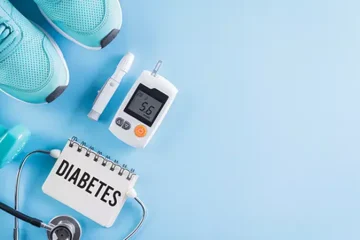Breaking the Cycle: How Ketamine Therapy for OCD Offers New Hope

Understanding OCD: A Persistent Mental Health Challenge
Obsessive-compulsive disorder (OCD) is a relentless condition that traps individuals in a cycle of intrusive thoughts and repetitive behaviors. Traditional treatments, such as cognitive-behavioral therapy (CBT) and selective serotonin reuptake inhibitors (SSRIs), work for many but leave others searching for relief. This is where ketamine therapy for OCD is emerging as a groundbreaking alternative.
What Is Ketamine Therapy?
Originally developed as an anesthetic, ketamine has gained recognition for its rapid-acting antidepressant properties. Over the past decade, research has shown that ketamine can help alleviate symptoms of depression, anxiety, and OCD. Unlike traditional treatments that take weeks to show results, ketamine often provides relief within hours or days, making it a promising option for those struggling with severe symptoms.
How Ketamine Therapy Helps with OCD
Ketamine’s mechanism of action is different from conventional medications. It targets the glutamate system, enhancing neural connections and promoting neuroplasticity. This can help patients break free from the rigid thought patterns associated with OCD. Many individuals who have not responded to standard medications find that ketamine therapy provides them with significant symptom relief and a renewed sense of control over their lives.
The Rise of Affordable Ketamine Treatment
Despite its potential benefits, cost has been a barrier for many seeking ketamine therapy. Fortunately, as demand increases and more providers offer the service, affordable ketamine treatment is becoming a reality. Clinics nationwide are working to make this innovative therapy accessible through flexible payment plans, insurance options, and lower-cost alternatives.
What to Expect During Ketamine Therapy for OCD
Patients undergoing ketamine therapy for OCD typically receive treatment in a controlled medical setting. The process includes:
- Initial Evaluation: A thorough assessment to determine candidacy for treatment.
- Administration: Ketamine is delivered intravenously, via nasal spray, or in oral form, depending on the clinic and patient needs.
- Monitoring: A healthcare provider supervises the session to ensure safety and effectiveness.
- Post-Treatment Integration: Patients work with therapists to process their experience and maximize results.
Is Ketamine Therapy Safe?
Ketamine therapy is generally safe when administered by medical professionals. However, it is not suitable for everyone. Individuals with certain medical conditions or histories of substance abuse should consult with their healthcare providers before pursuing treatment. Side effects, such as dizziness, nausea, or dissociation, are usually temporary and subside shortly after the session.
Comparing Ketamine Therapy to Traditional OCD Treatments
| Treatment Method | Time to See Results | Effectiveness |
| SSRIs | 4-6 weeks | Effective for many but not all |
| CBT | Ongoing | Requires commitment, may not work for severe cases |
| Ketamine Therapy | Hours to days | Rapid relief, promising for treatment-resistant OCD |
The Future of OCD Treatment with Ketamine
With ongoing research and growing clinical support, ketamine therapy for OCD is paving the way for new approaches to mental health treatment. As more individuals share success stories, the stigma surrounding alternative therapies continues to fade, allowing those in need to explore new avenues for relief.
Finding an Affordable Ketamine Treatment Provider
If you or someone you know is struggling with OCD and seeking alternative treatments, exploring affordable ketamine treatment options may be worthwhile. Many clinics offer consultations to discuss treatment plans and financial options, ensuring that cost does not prevent access to this life-changing therapy.
Ketamine therapy represents a major breakthrough in the treatment of OCD. For those who have struggled with traditional approaches, it offers a beacon of hope. As research continues and accessibility improves, more individuals will have the opportunity to break free from the grip of OCD and regain control of their lives.












